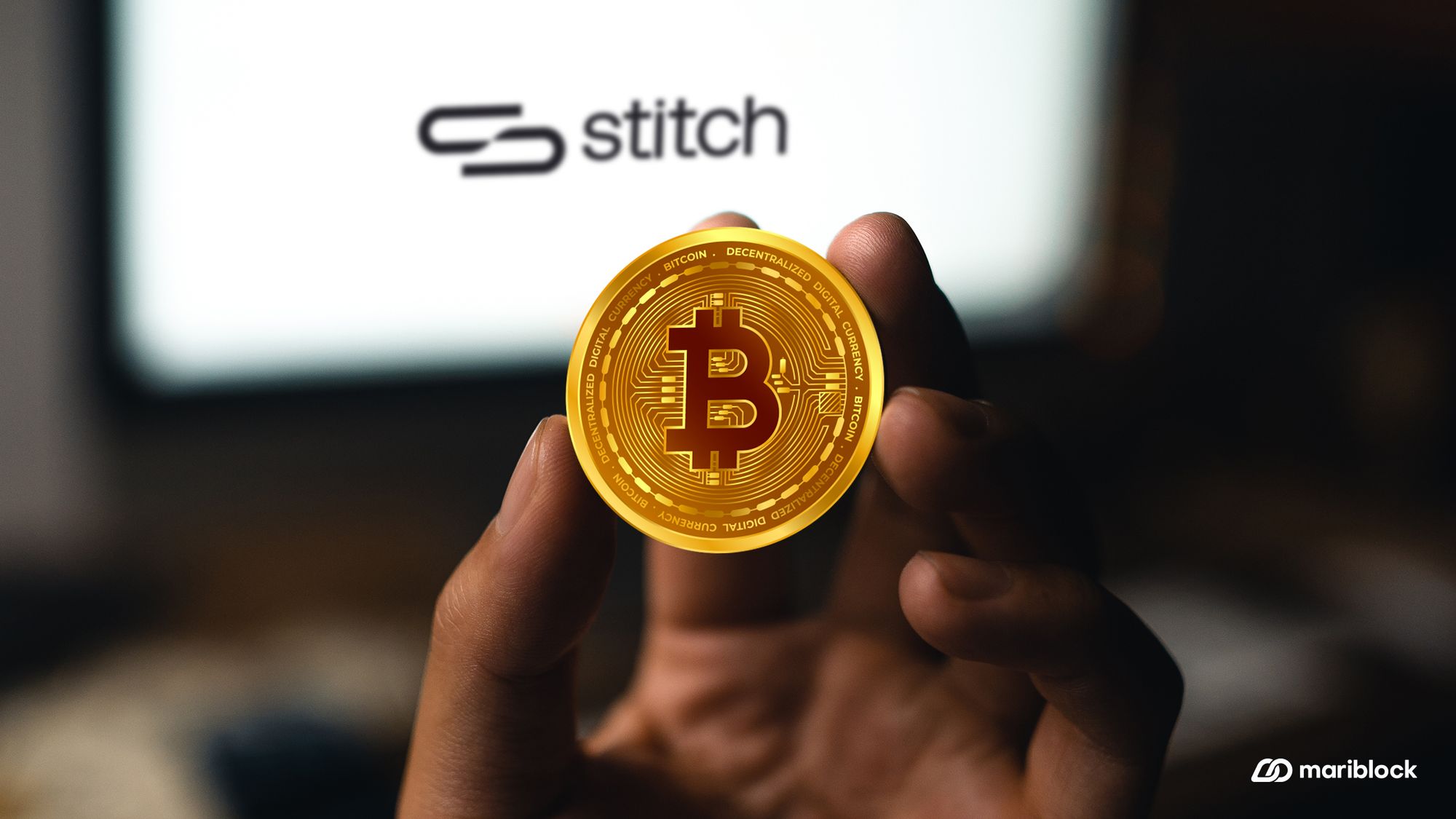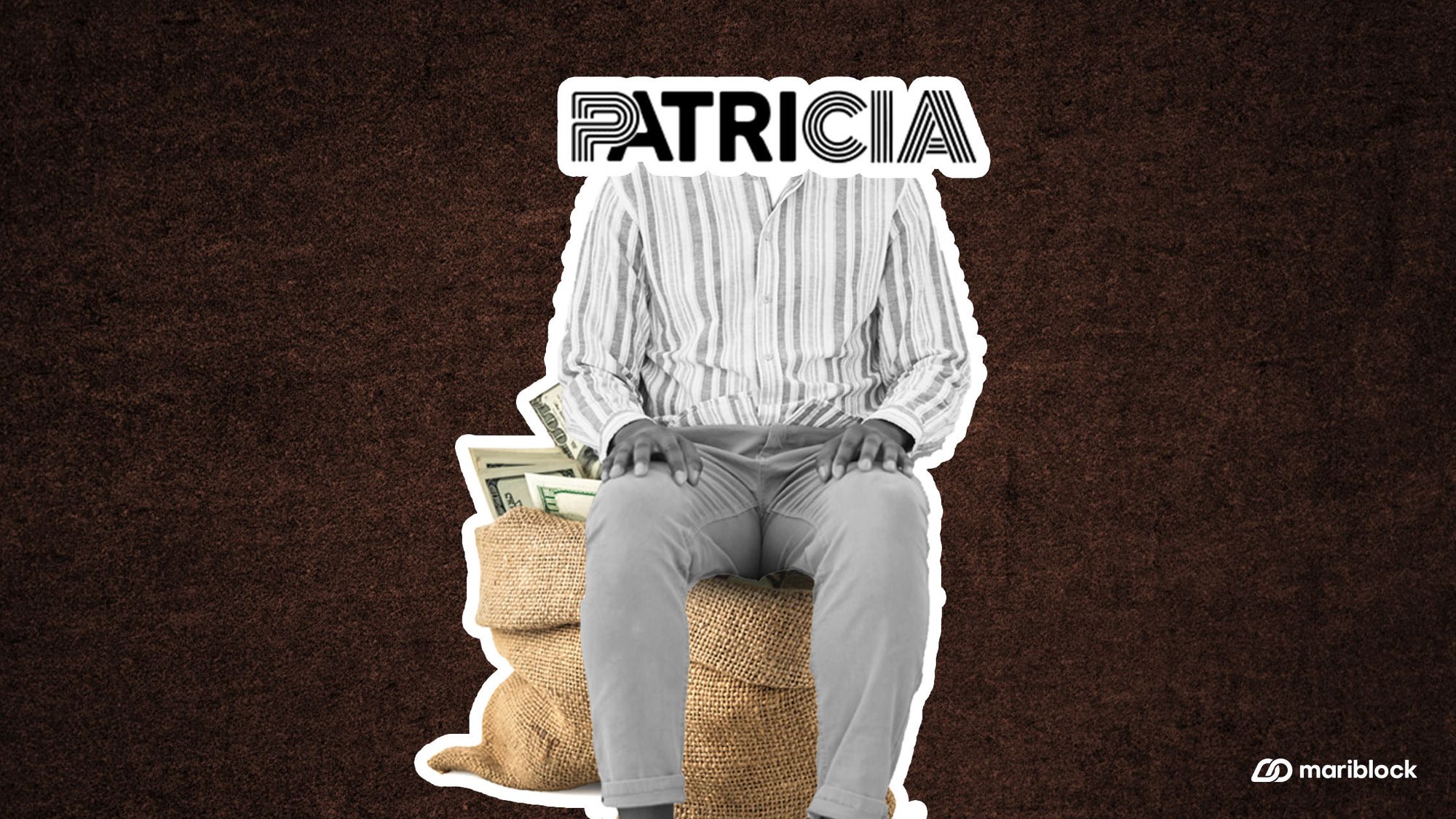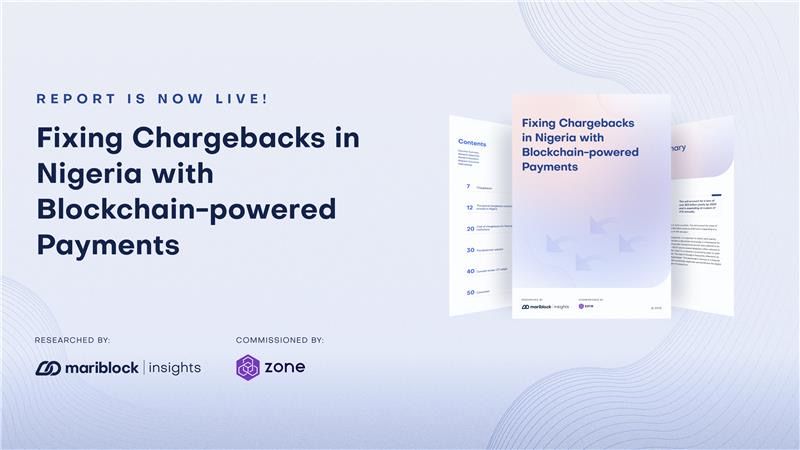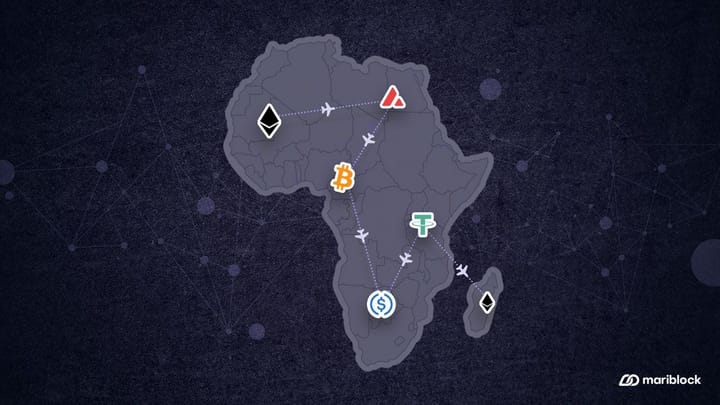🟠 South Africa, the crypto torchbearer
Plus: 🇳🇬 Patricia hack saga continues 🇸🇨 Seychelles’ statement about unregistered virtual asset service providers.

We took a step back to recalibrate and ensure that the content we deliver is top-notch, tailored to your interests, and packed with value.
Quick note: Your feedback is important to us, and we’re constantly striving to improve your reading experience. So, a big shoutout to those who’ve shared their thoughts — we appreciate your input!
But for those who haven’t, we’re sending a 👀. Why the silence? Your feedback helps us shape the content you want to see, so don’t be shy — let us know what you love, what you’re curious about, and what you’d like to see more of.
Alright, enough of the welcome-back speech. Let us see what the blockchain industry has been up to.
Stay up-to-date with the latest blockchain and digital asset developments in Africa
Stitch introduces crypto payment in South Africa

Topline: Last week, South African fintech Stitch launched a new cryptocurrency payment product. (Details)
- Dubbed “Pay with Crypto,” the feature allows users to pay in crypto while enabling businesses to settle transactions in South African rand.
Details: The feature is built on top of crypto company VALR’s application programming interface (API), which allows users to pay with assets held in their VALR or Binance wallets.
- Binance users can pay with any crypto assets, while Valr users are limited to bitcoin or ethereum for now.
- Stitch told Mariblock that, unlike Valr Pay, Binance Pay supports multicurrency payments.
Key quote
- Stitch told Mariblock:
“With Binance Pay, users can complete a payment using any cryptocurrency they have in their wallet. VALR Pay is adding multicurrency support in the near future. For now, we are working towards adding USDT to VALR Pay and our own direct crypto deposit option.”
🫧 Oluwaseun’s thought bubble: As I think through this development, I am even more convinced that clear, supportive regulation will significantly determine Africa’s crypto hub.
- I looked around and couldn’t find any other traditional fintech on the continent playing with crypto assets other than stablecoin. Regulatory clarity is required for that to happen, and South Africa has it.
- This adds context to Emmanuel Njoku’s admission that the lack of regulatory clarity contributed to Lazerpay’s failure.
- He told Crypto@Scale podcast:

- It also echoes the Blockchain Association of Kenya’s message to the parliament.
- “Basically, we are telling [the] parliament: ‘Look, Kenya has always branded itself as the Silicon Savannah; we are top three for digital assets [volume in Africa], and if we do not develop a clear licensing and regulatory framework, Nigeria, South Africa, Botswana, Namibia, Mauritius would take the lead, and the capital flow that would have come to Kenya would have flocked elsewhere.’”
Crypto-friendly Seychelles tackles unregistered virtual assets service providers

Topline: Africa’s crypto haven, Seychelles, recently called out 50 unregistered virtual assets service providers (VASPs) for operating as if they were licensed. (Details)
- Seychelles’ Financial Service Authority (FSA) explained in a press release published last week that the companies do not follow the country’s anti-money laundering and counter-terrorism financing (AML/CFT) guidelines.
- The regulator added that these unlicensed VASPs challenge the government regarding oversight, compliance, and consumer protection.
Why it matters: Seychelles is known as a crypto-friendly country due to its relaxed know-your-customer guidelines.
- It is the legal home to many international crypto companies, including Binance, KuCoin and OKEx.
Of note: Seychelles has no defined laws regulating virtual assets and related service providers. However, amidst an increase in crypto-related complaints and consumer losses, Seychelles’ Finance Minister, Nadir Hassan, revealed that the country is crafting a regulatory framework to rein in the virtual assets ecosystem.
- The country expects to finalize work on the legislative framework for virtual assets early in 2024.
☁️ Ogechi’s thought cloud: As crypto scams continue to increase across the continent, I expect to see a surge in crypto regulations across Africa in 2024 — the market entire into a full-blown bull run.
- Albeit slowly, governments across the continent are noticing the increasing popularity of cryptocurrencies and the associated risks and are taking steps to establish safeguards to protect their citizens.
- Kenya recently joined the regulatory bandwagon. It has tasked the Blockchain Association of Kenya with drafting the initial framework for a virtual asset service provider bill.
Patricia. saga continues

Topline: Patricia Technologies appeared on the news twice last week.
First, the embattled crypto exchange failed to meet its repayment deadline on Nov. 20. (Details)
Driving the news: Following its dispute with proposed escrow company DLM Trust about its repayment plan, Patricia promised users that repayment would begin on Nov. 20 despite all odds.
- Two days after the self-imposed repayment date, Mariblock contacted users, who confirmed that Patricia had not paid them as promised.
- After a rigorous login process, they discovered that all their funds had been converted to the controversial Patricia debt token (PUTX). Users could only access their dashboard and see their balances after they had agreed to the conversion.
- At the time, users could not convert their allotted PUTX into any other digital currency or fiat for withdrawal.
- One user said: “No, we have not [been able to withdraw]. Hanu did not pay anyone who converted bitcoin to … PUTX. Nobody has said anything about payment.”
Patricia’s POV: In an email to its users, Patricia announced that repayment had commenced. The company said the repayment would be done in batches — on a first-come, first-served basis — with priority given to users with smaller balances.
- It added that it would announce a new date for repaying the next batch of users, contingent on the exchange raising additional funds to repay its debts.
Second, the Nigerian Police Force (NPF) announced on Nov. 24 that its cybercrime center had arrested Wilfred Bonse in connection with the breach of the Patricia. (Details)
About Wilfred Bonse: Last February, the People’s Gazette published a report accusing Bonse, a gubernatorial candidate in Cross Rivers state, of being investigated by the police for receiving funds from the fraudulent hack of an unnamed financial account.
- Bonse rebuffed the allegations and threatened legal action against the publication for defamation.
Mariblock Insights: Fixing chargebacks in Nigeria with blockchain-powered payments

Topline: Technology has modernized financial transactions and revolutionized payment methods, simplifying and enhancing convenience for consumers. However, this progress has also facilitated fraudulent activities, including damaging chargeback frauds, affecting both online and local vendors.
- In our inaugural report, we explore this pressing concern in depth. We dissect the intricacies of chargebacks in Nigeria and shed light on blockchain technology’s transformative potential.
- This report was commissioned by the Nigerian blockchain company Zone Network. However, Mariblock Insights independently researched and produced the work.
- Click here to download the report.
Catch up

🇰🇪 IMF expands Kenya’s financing package to $938 million (Mariblock)
🌏 How crypto provides people with a way out during conflicts (Mariblock)
What we’re reading:
🇺🇸 Binance Dies, And Crypto Is Birthed (Forbes)
🌍 Kraken sued by SEC in latest clampdown on crypto exchanges (Financial Times)
🌍 GEO report: crypto adoption in Sub-Saharan Africa — Podcast (Chainalysis)
🌍 What’s really happening with crypto in Africa? (Wiza Jalakasi)
🇳🇬 Nigerian Bitcoin miner Trojan Mining launches 500KW hydro mining site (Forbes)
That’s it for this week.
See you next week.
Cheers,
Ogechi.



